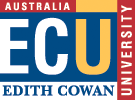COURSE INFORMATION
Disclaimer
This course information may be updated and amended immediately prior to semester. To ensure you have the correct outline, please check it again at the beginning of semester.
|
The Bachelor of Science (Human Biology) is a multidisciplinary course. The major study in Human Biology is focused upon issues of health and disease. It combines the traditional interests of Human Biologists - Genetics, Anatomy and Physiology and Evolution - with a biomedical analysis of the human condition. The result is a program that analyses health and disease as fundamental parts of the human experience, providing the knowledge and skills required by careers in Human Biology and Biomedical Science. In addition, this Bachelor of Science in Human Biology serves as a pre-medical program, with an increasing number of Human Biology graduates enrolling in Postgraduate Medicine.
|
| |
ADMISSION REQUIREMENTS
As per ECU undergraduate admission and entry requirements.
|
| |
COURSE LOCATION
This course is available on Joondalup Campus. |
| |
MODE OF STUDY
This course is available by Full-time, or Part-time mode. |
| |
MODE OF DELIVERY
This course is available in the following mode of delivery - On-campus. |
| |
COURSE STRUCTURE
The Bachelor of Science (Human Biology) is a 360 credit point (24 unit), multidisciplinary course. It consists of a 240 credit point (sixteen unit) Major in Human Biology combined with EITHER a 120 credit point (eight unit) Supporting Major OR 120 credit points consisting of a six unit Minor and two electives.
|
| |
| |
| YEAR ONE |
| Semester 1 |
| SCH1111 |
Fundamental Biomedical Techniques |
15 | | SCH1133 |
Human Genetics |
15 | | SCH1134 |
Human Structure and Function |
15 | | Plus one Supporting Major unit |
| or one Minor unit |
| or one Elective unit |
| |
| Students who do not have TEE chemistry background or equivalent, must enrol in the unit SCH1123 Chemistry for Life Sciences. |
| |
| Semester 2 |
| SCC1226 |
Introduction to Organic Chemistry and Biochemistry |
15 | | SCH1132 |
Human Evolution and Ecology |
15 | | SCH1143 |
Systems Physiology |
15 | | Plus one Supporting Major unit |
| or one Minor unit |
| or one Elective unit |
| |
| YEAR TWO |
| Semester 1 |
| SCH2226 |
Human Molecular Genetics |
15 | | SCH2232 |
Medical Biochemistry |
15 | | SCH2235 |
Applied Microbiology |
15 | | Plus one Supporting Major unit |
| or one Minor unit |
| or one Elective unit |
| |
| Semester 2 |
| SCH2111 |
Applied Physiology |
15 | | SCH2141 |
Advanced Biomedical Techniques |
15 | | SCH2142 |
Forensic Genetics |
15 | | Plus one Supporting Major unit |
| or one Minor unit |
| or one Elective unit |
| |
| YEAR THREE |
| Semester 1 |
| Students will select two of the following: |
| SCH3145 |
Biomedical Ethics |
15 | | SCH3223 |
Medical Genetics |
15 | | SCH3227 |
The Biology of Human Disease |
15 | | Plus |
| Two Supporting Major units |
| or two Minor units |
| or one Minor unit and one Elective unit |
| or two Elective units |
| |
| Semester 2 |
| SCH3244 |
Developmental Biology |
15 | | SCH3434 |
Human Reproduction, Development and Ageing |
15 | | Plus Two Supporting Major units |
| or two Minor units |
| or one Minor unit and one Elective unitunits |
| or two Elective units |
| |
| |
SUPPORTING MAJOR AND MINOR FIELDS OF STUDY
The following areas are recommended for consideration by students as suitable Supporting Major and Minor fields of study:
Addiction Studies
Biomedical Science
Chemistry
Computer Science
Health Promotion
Mathematics
Multidisciplinary Science
Nutrition
Physical Sciences
Physics
Psychology
Sports Science
Other areas may be selected with the approval of the Course Coordinator. |
| |
| | | |
| |
| Disability Standards for Education (Commonwealth 2005) | | | For the purposes of considering a request for Reasonable Adjustments under the Disability Standards for Education (Commonwealth 2005), inherent requirements for this subject are articulated in the Unit Description, Learning Outcomes, Graduate Attributes and Assessment Requirements of this entry. The University is dedicated to provide support to those with special requirements. Further details on the support for students with disabilities or medical conditions can be found at the Student Equity, Diversity and Disability Service website: | | http://intranet.ecu.edu.au/student/support/student-equity |
|
Last Updated - Higher Education: 4/30/2009 VET: 4/30/2009
